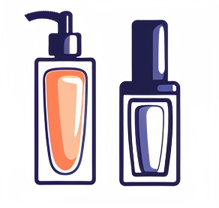How ketoconazole shampoo 2% fights dandruff and scalp fungus
One of the primary ways in which ketoconazole shampoo 2% fights dandruff is by inhibiting the growth of fungi on the scalp. Dandruff is often caused by an overgrowth of a yeast-like fungus called Malassezia. Ketoconazole disrupts the cell membranes of these fungi, preventing their proliferation and ultimately reducing the severity of dandruff.
Moreover, the antifungal properties of ketoconazole extend beyond just addressing dandruff. Individuals suffering from more severe fungal infections, such as seborrheic dermatitis or pityriasis versicolor, can also benefit from the use of ketoconazole shampoo 2%. The shampoo’s 2% concentration ensures a potent antifungal effect, making it effective in managing these conditions.
Besides its antifungal actions, ketoconazole exhibits anti-inflammatory properties. This is crucial in addressing the associated symptoms of dandruff, such as scalp redness and itching. By reducing inflammation, the shampoo not only tackles the root cause of dandruff but also provides relief from the discomfort it may cause.
The application of ketoconazole shampoo 2% is user-friendly, integrating seamlessly into regular hair care routines. Typically, it is recommended to use the shampoo twice a week for a specified duration. This routine helps maintain a balance on the scalp, preventing the recurrence of dandruff and fungal infections.
For those concerned about cosmetic aspects, ketoconazole shampoo 2% also contributes to the overall health and appearance of the hair. By eliminating the fungal factors that contribute to dandruff, the shampoo promotes a healthier scalp environment, which can lead to improved hair quality and shine.
It’s important to note that while ketoconazole shampoo 2% is generally well-tolerated, individuals with specific allergies or sensitivities should exercise caution. Consulting with a healthcare professional is advisable, especially for those with pre-existing skin conditions or concerns about potential side effects.
Fungal scalp treatment: a closer look at ketoconazole
Fungal scalp treatment: a closer look at ketoconazole
Fungal infections of the scalp can be a persistent nuisance, causing discomfort, itching, and sometimes even hair loss if left untreated. One of the most effective treatments for fungal scalp infections is ketoconazole, a powerful antifungal medication that targets the root cause of the problem.
Ketoconazole works by inhibiting the growth of fungi on the scalp, including the notorious Malassezia species, which is often responsible for dandruff and other fungal scalp conditions. It disrupts the fungal cell membrane, leading to the death of the fungus and ultimately clearing the infection.
One of the key advantages of ketoconazole is its broad-spectrum activity, meaning it can effectively target a wide range of fungal species that may be causing the infection. This makes it a versatile treatment option for various types of fungal scalp conditions.
There are several formulations of ketoconazole available for scalp treatment, including shampoos, creams, and foams. These formulations allow for convenient application directly to the affected area, ensuring maximum efficacy.
When using ketoconazole shampoo for fungal scalp treatment, it’s essential to follow the recommended usage instructions. Typically, this involves applying the shampoo to wet hair, massaging it into the scalp, and leaving it on for a few minutes before rinsing thoroughly.
For more severe or stubborn fungal scalp infections, a healthcare provider may prescribe a stronger formulation of ketoconazole or recommend combination therapy with other antifungal medications.
While ketoconazole is generally well-tolerated, some individuals may experience side effects such as scalp irritation, dryness, or changes in hair texture. It’s essential to discontinue use and consult a healthcare provider if any adverse reactions occur.
In addition to its antifungal properties, ketoconazole has also been shown to have anti-inflammatory effects, which can help alleviate symptoms such as itching and redness associated with fungal scalp infections.
Overall, ketoconazole is a highly effective and versatile treatment option for fungal scalp infections. By targeting the underlying cause of the infection, it can provide rapid relief from symptoms and help restore scalp health.
Dandruff control shampoo: strategies for healthy scalp
Dandruff control shampoo: Managing dandruff and maintaining a healthy scalp requires a strategic approach, often involving specialized dandruff control shampoo. These shampoos are formulated with ingredients tailored to address the underlying causes of dandruff while promoting scalp health.
One key strategy in controlling dandruff is to use shampoos containing active ingredients such as zinc pyrithione, coal tar, or salicylic acid. These ingredients work to combat the fungus Malassezia, which is often associated with dandruff, thereby reducing flaking and itching.
Another effective approach is to opt for shampoos containing antifungal agents like ketoconazole. Ketoconazole has been shown to effectively target the fungi responsible for dandruff, providing long-lasting relief from symptoms.
| Active Ingredient | Function |
|---|---|
| Zinc Pyrithione | Controls fungus and bacteria |
| Coal Tar | Slows skin cell turnover |
| Salicylic Acid | Exfoliates dead skin cells |
| Ketoconazole | Targets dandruff-causing fungi |
Additionally, incorporating ingredients like tea tree oil or menthol can provide soothing relief for irritated scalps while helping to maintain a balanced scalp microbiome.
When using dandruff control shampoo, it’s important to follow the manufacturer’s instructions for best results. Typically, this involves massaging the shampoo into the scalp and allowing it to sit for a few minutes before rinsing thoroughly.
Consistency is key when it comes to managing dandruff. Regular use of dandruff control shampoo can help keep symptoms at bay and promote a healthy scalp environment over time.
The benefits of using ketoconazole shampoo 2% regularly
Ketoconazole shampoo 2% is a powerful tool in the arsenal against various scalp conditions, offering a range of benefits when used regularly. Here’s a closer look at why incorporating this shampoo into your hair care routine can yield remarkable results:
1. Treats Dandruff: One of the primary benefits of ketoconazole shampoo 2% is its efficacy in combating dandruff. Dandruff, caused by an overgrowth of yeast on the scalp, leads to flaking and itching. The antifungal properties of ketoconazole target the yeast, reducing its population and alleviating dandruff symptoms.
2. Controls Seborrheic Dermatitis: Seborrheic dermatitis is a common skin condition characterized by red, itchy, and flaky patches, particularly on the scalp. Ketoconazole shampoo helps control this condition by reducing inflammation and scaling, providing relief from discomfort.
3. Regulates Scalp Oil Production: Another benefit of using ketoconazole shampoo 2% regularly is its ability to regulate scalp oil production. By controlling the production of sebum, the shampoo helps maintain a balanced scalp environment, preventing both oily scalp and dryness.
4. Promotes Hair Growth: Healthy hair growth relies on a healthy scalp environment. By addressing issues like dandruff and seborrheic dermatitis, ketoconazole shampoo 2% creates a favorable environment for hair follicles to thrive, potentially promoting thicker, fuller hair.
5. Reduces Hair Shedding: Excessive hair shedding can be distressing, but ketoconazole shampoo may offer relief. By improving scalp health and reducing inflammation, it may help minimize hair shedding, leading to thicker-looking hair over time.
6. Enhances Treatment of Hair Loss Conditions: Ketoconazole shampoo is often used as an adjunct treatment for hair loss conditions like androgenetic alopecia. While not a standalone solution, it can complement other treatments by improving scalp health and creating a conducive environment for hair regrowth.
7. Convenience and Accessibility: Available over-the-counter in many regions, ketoconazole shampoo 2% offers a convenient solution for addressing various scalp concerns without the need for a prescription. Its accessibility makes it an attractive option for individuals seeking effective at-home treatment.
Ketoconazole shampoo for different scalp conditions
Ketoconazole shampoo is a versatile product renowned for its efficacy in treating various scalp conditions. Whether you’re dealing with dandruff, seborrheic dermatitis, or fungal infections, ketoconazole shampoo can offer relief and restore scalp health.
Dandruff: One of the most common scalp issues, dandruff, is characterized by flaky, itchy skin. Ketoconazole shampoo targets the underlying cause of dandruff by inhibiting the growth of Malassezia, a yeast-like fungus responsible for flaking and irritation. Regular use of ketoconazole shampoo helps control dandruff symptoms, leaving the scalp feeling clean and refreshed.
Seborrheic Dermatitis: This chronic inflammatory condition results in red, itchy, and scaly patches on the scalp. Ketoconazole shampoo provides relief by reducing inflammation and controlling fungal overgrowth. Its anti-inflammatory properties soothe the scalp while its antifungal action combats the underlying cause of seborrheic dermatitis.
Fungal Infections: Fungal infections such as tinea capitis can cause hair loss, itching, and inflammation. Ketoconazole shampoo effectively eliminates fungal infections by disrupting the cell membranes of fungi, preventing their proliferation. It penetrates deep into the scalp to eradicate fungal overgrowth, promoting healthy hair growth and scalp integrity.
It’s important to follow the instructions for ketoconazole shampoo use carefully. Typically, it’s applied to wet hair, massaged into the scalp, and left on for several minutes before rinsing. For severe cases, a healthcare professional may recommend using it more frequently initially, then reducing frequency as symptoms improve.
Ketoconazole shampoo is generally well-tolerated, but like any medication, it may cause side effects in some individuals. These can include scalp irritation, dryness, or a temporary increase in hair shedding. If you experience persistent or severe side effects, discontinue use and consult a healthcare professional.
User experiences with ketoconazole shampoo 2%
User Experiences with ketoconazole shampoo 2%
Ketoconazole shampoo 2% has garnered significant attention for its effectiveness in treating various scalp conditions, particularly dandruff and seborrheic dermatitis. Users have shared diverse experiences with this product, highlighting both its benefits and potential drawbacks.
Effectiveness:
Users commonly report positive experiences regarding the effectiveness of ketoconazole shampoo 2%. Many have noticed a significant reduction in dandruff and itchiness after just a few uses. Some users even claim that it has completely eliminated their scalp issues, providing long-term relief.
Ease of Use:
The ease of use of this shampoo is another aspect that users appreciate. Its lathering consistency allows for easy application, and it rinses off without leaving any residue. Users often mention its pleasant smell, which adds to the overall experience.
Fast Results:
One of the most notable benefits reported by users is the speed at which they see results. Many notice improvements after just a few applications, which is crucial for individuals seeking quick relief from scalp conditions.
| Pros | Cons |
|---|---|
| Effective against dandruff and seborrheic dermatitis | Potential for dryness with prolonged use |
| Pleasant smell and lathering consistency | May be expensive compared to other shampoos |
| Fast-acting formula | Not suitable for everyone, may cause irritation |
Potential Drawbacks:
While many users rave about the benefits of ketoconazole shampoo 2%, some have experienced dryness with prolonged use. This could be attributed to its antifungal properties, which may also affect the natural oils on the scalp. Additionally, the cost of this shampoo may be prohibitive for some users compared to other over-the-counter options.
Alternatives to ketoconazole shampoo: herbal and chemical options
When seeking alternatives to ketoconazole shampoo, individuals often explore a range of options, considering both herbal and chemical alternatives. While ketoconazole is effective against fungal infections like dandruff, some may prefer alternative solutions for various reasons.
One herbal option gaining popularity is tea tree oil. Known for its natural antifungal properties, tea tree oil can be diluted and applied to the scalp. Its efficacy against dandruff has been supported by several studies. However, caution is advised as undiluted tea tree oil may cause irritation.
Another herbal alternative is rosemary oil. Rich in antioxidants, rosemary oil is believed to promote a healthy scalp. It can be mixed with a carrier oil and massaged onto the scalp. While it may not have the same antifungal potency as ketoconazole, its overall scalp benefits make it a consideration for some.
For those inclined towards chemical alternatives, salicylic acid is a common choice. This ingredient helps exfoliate the scalp, removing dead skin cells and reducing flakiness. Shampoos containing salicylic acid can be found over the counter, offering an alternative approach to managing dandruff.
Coal tar is another chemical option with a history of use in dermatology. It works by slowing down the growth of skin cells, reducing inflammation and scaling. While effective, its distinct odor may be a drawback for some users.
Individuals considering herbal alternatives may also turn to aloe vera. Known for its soothing properties, aloe vera gel or juice applied to the scalp may help alleviate itchiness and irritation associated with dandruff. However, its antifungal effects are not as pronounced as some chemical options.
When navigating these alternatives, it’s crucial to understand that individual responses vary. What works for one person may not be as effective for another. Additionally, consulting with a healthcare professional or dermatologist is advisable to ensure the chosen alternative aligns with individual health conditions and needs.







